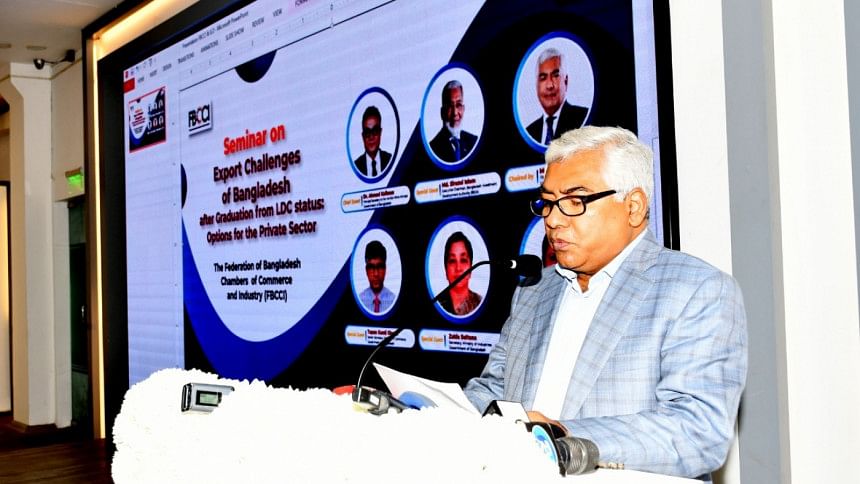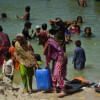Bangladesh to lose $6.38 billion in export after graduation: study

Bangladesh will lose export of goods worth $5.28 billion in a year to its largest export destination, the European Union (EU), after its graduation from the least developed country (LDC) category because of erosion of preferential trade benefits, according to a study.
In the post-LDC period, the local exporters will also face 8.91 per cent duty and there is a possibility of losing 26.28 per cent export to the EU because of the LDC graduation, the study also said.
The study was prepared with the data from the World Trade Organisation (WTO) on five major export destinations of Bangladesh.
Apart from the EU, Bangladesh will lose $5.36 million or 42.05 per cent of business to Canada where the local exporters will have to face 14.47 per cent duty.
Similarly, the country will lose $388.12 million or 30.53 per cent trade with Japan where the local exporters will face 8.89 per cent duty in the post LDC period.
In Korea, Bangladesh will face 7.94 per cent duty and lose business worth $87.78 million or 27.53 per cent of the total annual export to Korea.
In China, there is a possibility of losing $76.55 million or 8.29 per cent of total export because of 2.96 per cent duty on Bangladeshi goods.
In New Zealand, the local exporters will have to face 4.62 per cent duty and lose $10.13 million or 11.90 per cent export in a year, the study also said.
Mostafa Abid Khan, former member of Bangladesh Trade and Tariff and Commission, presented the findings of the study at a seminar on the "Export challenges of Bangladesh after graduation from LDC status: options for the private sector" organised by the Federation of Bangladesh Chambers of Commerce and Industry at its office in Dhaka.
Khan prepared the study with data from the WTO on five specific markets to estimate Bangladesh's lose of business because of the challenges of the LDC graduation in 2026. Government high-ups, leaders from the business community, academicians, researchers, experts also took part in the seminar.

 For all latest news, follow The Daily Star's Google News channel.
For all latest news, follow The Daily Star's Google News channel. 






Comments